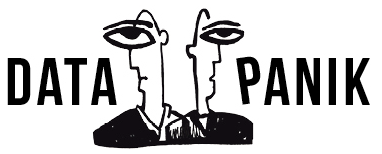 Waar een belachelijk stukje film als “The Innocence of Muslims” allemaal niet toe kan leiden. En dan bedoelen we niet alleen bloedige rellen en betogende pubers. De Electronic Frontier Foundation wijst erop dat in een aantal landen YouTube een tijdje geblokkeerd werd, dat andere landen vroegen om de video te blokkeren (iets waar YouTube op ingegaan is) en dat YouTube zelf in landen als Egypte en Libië overging tot preventieve censuur door de video daar te blokkeren.
Waar een belachelijk stukje film als “The Innocence of Muslims” allemaal niet toe kan leiden. En dan bedoelen we niet alleen bloedige rellen en betogende pubers. De Electronic Frontier Foundation wijst erop dat in een aantal landen YouTube een tijdje geblokkeerd werd, dat andere landen vroegen om de video te blokkeren (iets waar YouTube op ingegaan is) en dat YouTube zelf in landen als Egypte en Libië overging tot preventieve censuur door de video daar te blokkeren.
Reden voor de EFF om een paar vragen te stellen over de grenzen van vrije meningsuiting op het internet.
As EFF’s Eva Galperin wrote for TechCrunch, one concern is the fact that the White House reportedly asked YouTube to review the video to ensure its compliance with the company’s terms of service. While it does not seem that the White House’s request was anything more than just that, as Galperin commented to Politico: “[W]hen the White House calls and asks you to review it, it sends a message and has a certain chilling effect.”
A second concern is the apparent fact that, in making their decision to censor in Egypt and Libya, YouTube did not consult with local civil liberties groups in either country. Whereas the later blockages—in India, Indonesia, Malaysia, Saudi Arabia, and by the time of publication, perhaps elsewhere—were determined by a local court in each respective country, the decision to block the video in Egypt and Libya was determined solely by a company in the United States with presumably no local expertise. Given the freedoms that Egyptians and Libyans risked their lives for during the uprisings of 2011, it is a shame that a Western company would serve as arbiter of what they are and are not capable of viewing online.
De EFF voegt eraan toe dat de acties die YouTube ondernomen heeft, nog maar eens duidelijk maken dat het internet minder vrij en minder publiek is dan we zo graag denken. Het feit dat de grootste spelers op het internet Amerikaanse privé-bedrijven zijn, heeft wel degelijk serieuze gevolgen. Het betekent bijvoorbeeld dat ze eenzijdig beslissingen kunnen nemen over wat wel of niet toegelaten is – ongeacht wat een samenleving daar zelf over beslist heeft. Of ze kunnen eenzijdig hun policy herzien over wat kan en wat niet kan, zonder waarschuwing en zonder dat ze dit hoeven te motiveren.
Met andere woorden, deze keer ging het over de trailer voor een haatdragend filmpje. Maar wat houdt er YouTube tegen om in de toekomst hetzelfde te doen over een heel ander thema?

